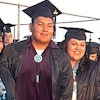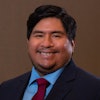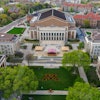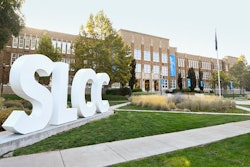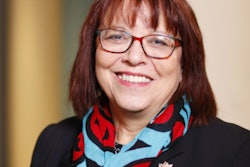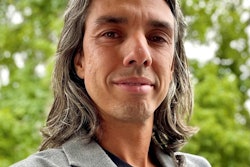Melissa Velky, a third-year law student at Michigan State University’s College of Law, is not waiting until graduation to immerse herself in a serious legal confrontation. With the livelihood of her native tribe at stake, Velky, daughter of Schaghticoke Nation Chief Richard Velky, is working now to help restore her tribe’s federal recognition.
Velky and nearly 300 others were members of the Schaghticoke Tribal Nation until their federal recognition was revoked in 2005. Velky, an indigenous law major, plans to launch an Internet-based campaign titled “Students for Justice” that will utilize social networks like Facebook and MySpace to garner support for her tribe.
“I am Schaghticoke, and I will always be,” says Velky, denouncing the notion that her identity and the history of her people can be revoked with the stroke of a pen.
The Schaghticoke Tribal Nation possesses documentation that proves its existence dating back to the early 1700s. Velky remembers vividly the camping trips and dancing ceremonies performed on the tribe’s 300 acre reservation in Kent, Conn.
Velky hopes that support from student activists will help to generate attention and raise awareness for her cause. “As we’ve seen in the political (primaries) with Barack Obama, students respond to this type activism,” Velky says.
In 1981, the tribe sent a letter of intent to the Bureau of Indian Affairs announcing their plans to petition for recognition. After years of gathering historical and genealogical information, the tribe’s 18,000-page petition was approved in 2004. The decision, however, was reversed in 2005, on appeal from the state citing the tribe’s inability to meet two of the seven criteria for federal recognition.
“The state is claiming that we don’t have enough marriages [among tribe members] and that we’re not [visible] in the community,” Velky says.
According to the document requirements for federal recognition, the petitioning tribe must have maintained a continuous community from historical times to the present. Current members of the group, as a whole, must descend from a historic tribe or a tribe that miscegenated.
Members of the current Schaghticoke Nation assert that since the 1800s, the Schaghticoke Tribal Nation has been a presence in the community, conducting tribal meetings, powwows, rattlesnake hunts, naming ceremonies, and other community activities.
Schaghticoke members also insist that the current membership of the nation is based on three unbroken lineages descending from the historical tribe.
Connecticut Attorney General Richard Blumenthal has already confirmed the state’s reversal. The tribe’s fate now lies in the hands of Peter C. Dorsey, the U.S. District Judge considering the appeal.
An activist in the making, Velky plans to develop a blog that will feature articles on Schaghticokes and their effort to gain federal recognition. It will also feature articles on the tribe’s history, information about tribal events and contact information for the tribe’s leadership. The launch date has yet to be determined; however supporters can contact Velky through
www. Schaghticoke.com.
Velky plans to complete her law degree this year and return to Connecticut to assist her tribe in their efforts.
While acknowledging that federal recognition will require more than just Internet support, Chief Richard Velky applauds his daughter’s efforts. “It is about preserving and restoring our historic reservation. It is about securing the future of our tribal elders. It is about ensuring our tribe’s continued existence,” he says.
Click here to post and read comments
© Copyright 2005 by DiverseEducation.com

